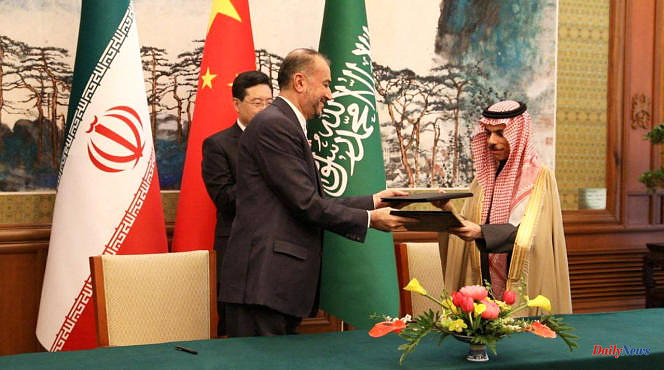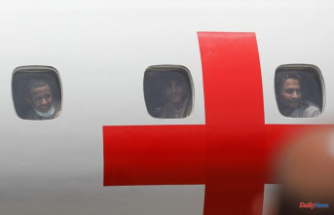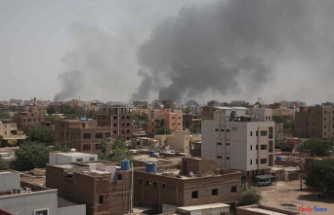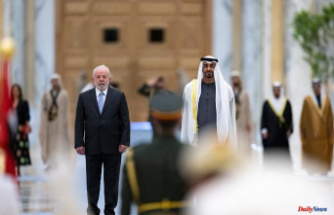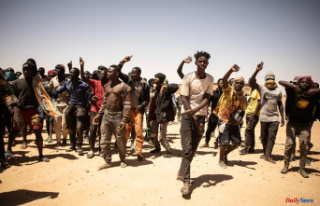Iranian and Saudi foreign ministers met Thursday (April 6th) in Beijing, sealing the reconciliation of the two Middle Eastern powers, after years of high tension. Iranian Hossein Amir-Abdollahian and Saudi Faisal bin Farhane Al Saud "negotiated and exchanged opinions with emphasis on the formal resumption of bilateral relations and steps to be taken towards the reopening of embassies and consulates of the two countries,” the Iranian Foreign Ministry said.
Sunni Saudi Arabia and Shia Iran severed ties in early 2016 after protesters in the Islamic Republic attacked Saudi diplomatic missions following Riyadh's execution of a famous Shia cleric, Nimr Baqer Al -Nimr.
However, the two countries surprised the world by announcing on March 10 that they wanted to restore their diplomatic relations within two months following secret talks in China.
This rapprochement should allow Iran and Saudi Arabia to reopen their embassies by mid-May, and to implement economic and security cooperation agreements signed more than 20 years ago.
Iranian President's visit to Saudi Arabia in late April
It should be formally celebrated during a visit by Iranian President Ebrahim Raisi to Riyadh, at the invitation of King Salman of Saudi Arabia, a trip planned after the end of Ramadan, at the end of April.
This climate of relaxation could have repercussions on several regional conflicts, particularly in Syria and Yemen, where the two countries support opposing camps.
The conclusion of the agreement in Beijing marks China's growing commitment to the Middle East, while the country has until now been perceived as reluctant to get involved in the thorny issues of the region.
Iran and Saudi Arabia thanked China in March "for hosting and supporting the talks" between them. They also welcomed the mediating role played by Iraq and the Sultanate of Oman from the spring of 2021. For their part, the United States "welcomed" the March 10 announcement, while stressing that it remained "to be seen whether Iran would fulfill its obligations".
A Paradigm Shift in Washington's Traditional Mideast Rule
For some experts, this agreement could represent a paradigm shift that would challenge the traditional domination in the Middle East of Washington, sworn enemy of Iran.
An ally of the United States and another adversary of Iran, Israel observes with concern this rapprochement between Riyadh and Tehran, which could affect the Abraham Accords, the normalization process it has launched with certain Arab countries.
In parallel with negotiations with Riyadh, Tehran is seeking to renew ties with the other capitals which had reduced their diplomatic ties since 2016 to support Saudi Arabia. In recent months, the Emirates and Kuwait have resumed diplomatic relations with Iran. The process is underway with Bahrain and Egypt could follow.
On Tuesday, Tehran appointed an ambassador to Abu Dhabi after almost eight years of absence, while the Emirates announced in August the dispatch of an ambassador to Tehran with the stated desire to "strengthen relations" with Iran .

